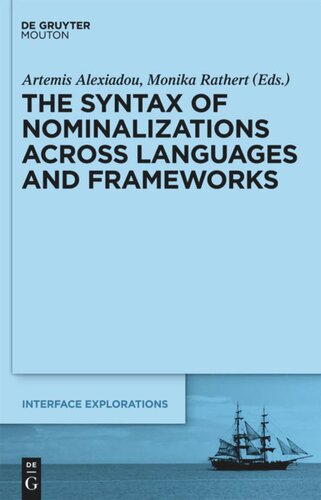

Most ebook files are in PDF format, so you can easily read them using various software such as Foxit Reader or directly on the Google Chrome browser.
Some ebook files are released by publishers in other formats such as .awz, .mobi, .epub, .fb2, etc. You may need to install specific software to read these formats on mobile/PC, such as Calibre.
Please read the tutorial at this link: https://ebookbell.com/faq
We offer FREE conversion to the popular formats you request; however, this may take some time. Therefore, right after payment, please email us, and we will try to provide the service as quickly as possible.
For some exceptional file formats or broken links (if any), please refrain from opening any disputes. Instead, email us first, and we will try to assist within a maximum of 6 hours.
EbookBell Team

4.3
88 reviewsThe volume explores the syntax of nominalizations, focusing on deverbal and deadjectival nominalizations, but also discussing the syntax of genitives and the syntax of distinct readings of nominalizations. The volume investigates the morpholgy-syntax interface as well as the semantics-syntax interface in the domain of nominalizations. The theoretical frameworks include distributed morphology, and minimalist syntax. Data from a variety of languages are taken into consideration, e.g. Hebrew, Bulgarian, Serbian, French, Spanish, German and English.